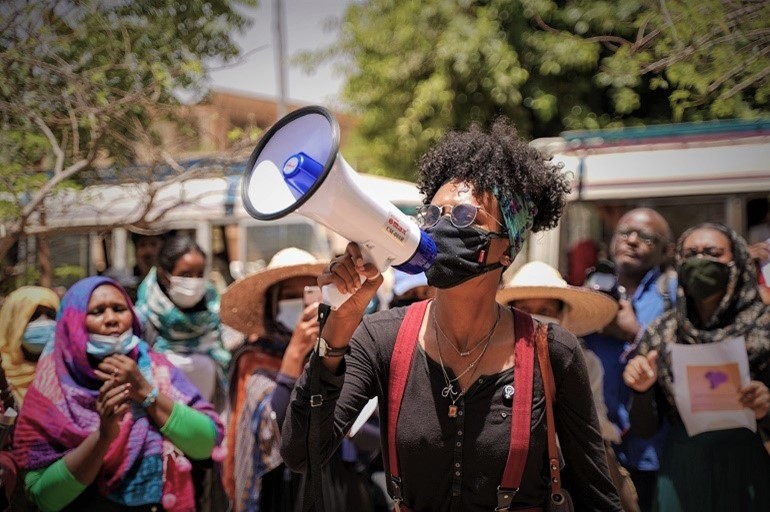The Sudanese Revolution began with spontaneous street protests that grievances that started in Damazin, Blue Nile state mid-December 2018 and spread to Atbara, where hundreds of people set fire to the local headquarters of the ruling party and other Sudanese cities. It then resulted in political and institutional changes, the highlight of which was the end of the Omar-El-Bashir regime.
But the ensuing political transition has been fragile at best. On 25 October 2021, the still nascent democratic transition was beset by a coup ochestrated by the military, prompting a new set of protests.
At the center of these resilient protestors have been frontline workers and human rights defenders, who, despite being faced with gross-human rights violations that have led some to exile, remain valiantly focused on the work for a better country. Based on a total of 39 interviews with Sudanese human rights defenders and women human rights defenders living in Sudan and in the diaspora, this report explores the experience and effects of the revolution on these frontline workers, particularly, women human rights defenders.

